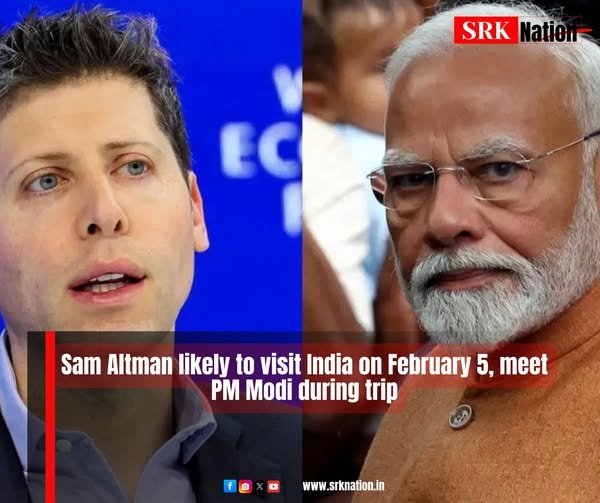Sam Altman, the CEO of OpenAI and the mind behind ChatGPT, is likely to visit India on February 5, according to sources. His trip will include meetings with key government figures, including Prime Minister Narendra Modi and Minister of Electronics and IT, Ashwini Vaishnaw.
Altman is also expected to participate in an industry fireside chat during his visit to New Delhi. This marks Altman’s second visit to India in two years and comes at a pivotal moment for the AI landscape.
OpenAI faces growing competition from DeepSeek
Altman’s visit coincides with a growing challenge to OpenAI’s dominance in artificial intelligence. Recently, Chinese firm Deepseek has shaken up the AI scene with its affordable and efficient model, R1, which has gained significant attention. Unlike the high-cost, high-compute models like ChatGPT, Deepseek’s R1 was developed for less than $6 million and requires much less computing power, making it an attractive alternative.
Deepseek’s R1 even overtook ChatGPT to become the top free app on Apple’s App Store, much to the surprise of the US tech industry. In response to the competition, tech giants like NVIDIA have been hit hard. NVIDIA suffered a staggering $590 billion loss in market value after the rise of Deepseek and similar AI players, marking the largest single-day loss ever recorded by a company.
Legal and strategic moves in India
While in India, Altman is expected to discuss various matters with government officials, including some of OpenAI’s legal challenges in the country. The company is currently dealing with allegations of copyright infringement. OpenAI has maintained that it only uses publicly available data and has questioned the jurisdiction of Indian courts to handle such cases.
At the same time, India is pushing forward with its own AI ambitions. Last week, the Indian government announced plans to build its own “foundational model,” aiming to rival models like ChatGPT and Deepseek. The country also unveiled a new AI computing facility, powered by 18,693 GPUs, designed to support startups and researchers in developing AI applications and algorithms. The new AI model will be highly affordable, with the cost set to be less than ₹100 per hour after a government subsidy, a stark contrast to the $2.50-$3 per hour charged by international models.
India’s growing role in global AI
The announcement is part of India’s broader strategy to secure a prominent place in the global AI race. Minister Ashwini Vaishnaw expressed confidence that India’s AI model would be world-class and competitive with the best in the field.
With growing concerns over the dominance of foreign AI models, India is positioning itself as a major player in the AI space, focusing on affordability and security for local industries.

See insights and ads
Like
Comment
Send
Share





